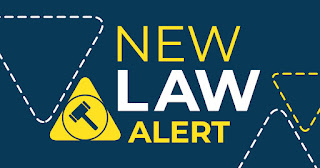On December 20, 2019, A2554 was enacted to "[p]rohibit[] commercial leases from including a waiver of the right to a declaratory judgment action and states that the inclusion of such a waiver in a commercial lease shall be null and void as against public policy."
New Real Property Law section 235-h took effect immediately on signing.
Welcome back Yellowstone Injunctions - it's like you never left us in the commercial arena. Commercial tenants facing eviction should consult with an attorney to get an injunction immediately before they are evicted.

New Real Property Law section 235-h took effect immediately on signing.
Welcome back Yellowstone Injunctions - it's like you never left us in the commercial arena. Commercial tenants facing eviction should consult with an attorney to get an injunction immediately before they are evicted.











